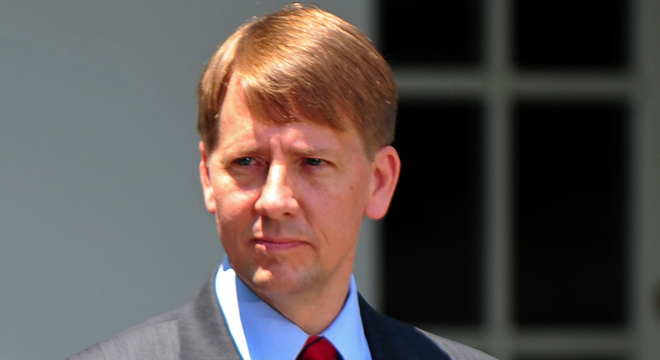Republicans are predictably attacking President Obama’s decision to recess appoint Richard Cordray — his top consumer watchdog — on procedural grounds and with constitutional volleys. This is why Obama and Cordray’s allies thought it might be wiser for Obama to make the appointment on Tuesday when, for technical reasons, he could have relied on precedent and avoided opening this particular Pandora’s box.
But by taking a more daring approach, Obama managed to both wrongfoot the GOP politically, and secure for Cordray up to an extra year in the director’s chair at the Consumer Financial Protection Bureau.
Here’s why:
By definition, a recess appointment expires at the end of the next full session of the Senate. If a nominee is recess appointed in the middle of a Senate session, he or she serves through the rest of that year, and through the next session.
Yesterday, it turns out, the Senate made the switch from the first to the second session of the 112th Congress. Some advocates hoped Obama would use the brief seconds between those two sessions to make the appointment. Because previous Presidents had seized that opening to make numerous recess appointments, Obama could have avoided a procedural or legal fight with the GOP. The rub, though, is that Cordray’s appointment would have expired at the end of the year. The “next full session,” after all, would have began mere seconds after his appointment was official.
By acting today, with session two of this Congress technically under way, Obama has given Cordray the rest of this session and the full next session of the Senate to run the bureau. Cordray could potentially serve through the end of 2013.
The Congressional Research Service outlined this in a recent report (PDF) — and the White House and Senate leaders of both parties confirm the analysis.
If Obama loses in 2012, that could shorten Cordray’s tenure — and of course Cordray can leave early if he wants to. But this move makes it much more likely that the CFPB will truly take root.
It also allows Obama to spotlight real policy — doing things that benefit the middle class — while Republicans keep themselves mired in the sorts of process arguments that only resonate inside the beltway.
The biggest potential drawback is that future Presidents will provide the same courtesy to other agency heads and bureaucrats — even unqualified or controversial ones. That’s always the risk with precedent-setting, though, and it’s completely plausible that something similar would have happened in the future whether or not Obama acted on Cordray.










